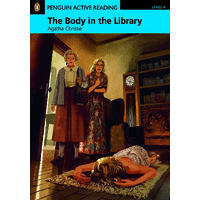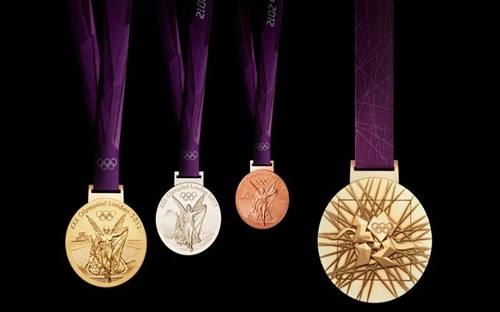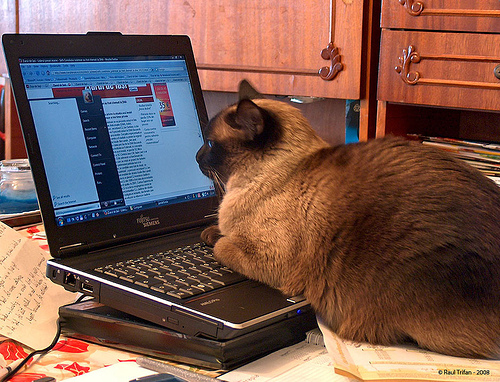A bit of this and that.
sábado, diciembre 15, 2012 | Posted by Chus. English.
A good site for revising: prepositions, articles, grammar...The Grammar Aquarium
Three word expressions
martes, noviembre 13, 2012 | Posted by Chus. English.
Here are ten common English expressions, along with an explanation and example sentence.
Black and white
Dos and don'ts
Haves and have nots
Ins and outs
Kiss and tell
Odds and ends
P's and Q's
Pros and cons
Rights and wrongs
Tried and tested
black and white = something which is extremely clear: "He told her in black and white that she couldn't leave the house while he was out."
dos and don'ts = the rules: "There are various do's and don'ts about driving in the UK."
haves and have nots = people who are rich and those who are not: "In London you can find the haves and have nots of the population."
ins and outs = the details: "I don't know the ins and outs of the situation, so I can't really advise you."
kiss and tell = when someone sells a story of themselves and a famous person: "The British tabloids are famous for publishing kiss and tell stories."
odds and ends = small pieces of various items: "She made a stew with the odds and ends she found in the fridge."
P's and Q's = manners (such as please and thank you): "Mind your P's and Q's when you visit them!"
pros and cons = advantages and disadvantages: "There are a few pros and cons that we should consider before buying a new house."
rights and wrongs = all the good points and bad points of a situation: "Regardless of the rights and wrongs of company policy, you need to give a month's notice."
tried and tested = something which has been well tested: "Using salt is a tried and tested way of getting red wine out of a carpet."
Here are ten more expressions:
Ups and downs
Come and go
Back and forth
Dribs and drabs
Said and done
Cat and mouse
Trial and error
Flesh and blood
Down and out
By and large
ups and downs = very good times and very bad times: "They have a lot of ups and downs in their relationship."
come and go = use somewhere as your base: "Feel free to come and go as you please!"
back and forth = not to stay still, but to keep travelling between two places: "I'm so glad I'm moving. I was getting sick of going back and forth every day. Now my journey to work will be a lot quicker."
dribs and drabs = not a steady amount of something: "The marathon runners finished in dribs and drabs."
said and done = to have the final word on something: "When it's all said and done, the new reception area is going to be a credit to the company."
cat and mouse = doing something in the same way that a cat plays with a mouse: "The guerillas played a cat and mouse game with the much better-equipped army."
trial and error = to do something new by making experiments and occasionally failing: "The new computer system has been installed. But it's a bit trial and error at the moment – nobody really knows how to use it."
flesh and blood = your family: "I have to help him if I can – he's my flesh and blood."
down and out = someone who has no money at all who has to live on the street: "There are too many young down and outs in London."
by and large = generally: "By and large, our customers prefer good service to low prices."
And a further ten expressions:
Up and running = in operation: "The new company is now up and running."
Noughts and crosses = a game where you take it in turns to put your symbol (either a nought or a cross) into one of nine spaces. The idea is to have a row of either three noughts or three crosses, but your opponent tries to block you. The game looks like this:
O X O
X O X
X O X
Bring and buy = a fair where people try to raise money for a cause by bringing something that other people might want to buy: "I'm making a cake for the school's bring and buy next week."
Hide and seek = a children's game where one child hides and the others try to find him / her: "Someone's been playing hide and seek with the TV remote control again!"
Around and about = a vague phrase to avoid saying where you have been exactly: "Where have you been – I've been worried!"
"Oh, around and about, you know."
To and fro = another way of saying "back and forth": "I'm exhausted – I've been going to and fro all week!"
Over and out = something you say to show you have come to the end of your message: "The last thing they heard from the pilot was 'over and out'."
Done and dusted = properly finished: "Well, that's this project done and dusted. We need a holiday now."
Dead and buried = something that will not happen: "That idea is now dead and buried – the Executive Committee decided some time ago to go with another proposal."
Wine and dine = to entertain someone lavishly: "He's well-known for wining and dining his business partners."
Bread and butter = your main source of income, or the most important issue: "Health and education are the bread and butter issues facing the UK government."
Spick and span = very tidy and clean: "Her house is spick and span at all times."
Wheel and deal = to make deals when buying and selling things: "If you need a new car, try speaking to John. He's a bit of a wheeler and dealer!"
Writing Narrative Paragraphs
lunes, noviembre 05, 2012 | Posted by Chus. English.
Narrative paragraphs are often used to describe what a person does over a period of time. Read this example narrative paragraph, notice how words like 'later' are used to connect what happens.
Yesterday evening I got home from work at 6 o'clock. My wife had prepared dinner which we ate immediately. After I had cleaned up the kitchen, we watched TV for about an hour. Then we got ready to go out with some friends. Our friends arrived at about 9 o'clock and we chatted for a while. Later we decided to visit a jazz club and listen to some music. We really enjoyed ourselves and stayed late. We finally left at one o'clock in the morning.
‘used to + infinitive’ and ‘be/get used to’
viernes, noviembre 02, 2012 | Posted by Chus. English.
PREFIXES AND SUFFIXES
miércoles, octubre 10, 2012 | Posted by Chus. English.
PLAY WITH PREFIXES.
READERS FOR 2ND BACH.
miércoles, octubre 10, 2012 | Posted by Chus. English.
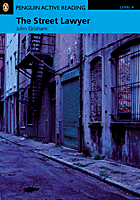 | |||
|
VISIT THE OLYMPIC PARK
martes, septiembre 04, 2012 | Posted by Chus. English.
Would you like to visit London's Olympic Park? There's no need to get on a plane. Watch this and take a video tour.
Hens sort out the pecking order
martes, agosto 07, 2012 | Posted by Chus. English.
REPORTER: A lot of pluck perhaps, but there's not much urgency here. The annual World Hen Racing Championships hoped to rival human sport - but for these chicks, racing is for the birds.
MIKE GIBSON, HEN OWNER: "Well the UK is doing well in the Olympics, so why not the chicken?"
REPORTER: Rules are sparse: no dogs, no pecking and winners were almost as scarce as hen's teeth. In fact, organizer John Barry said performance was downright fowl.
JOHN BARRY, ORGANIZER: "I've been here for twenty years now running the hen racing, since 1992, and I can definitely say apart from the final, that is definitely the worst set of hens I have ever seen in my life, shocking, absolutely shocking, the owners need to go back and have another word with themselves!"
REPORTER: And despite many ruffled feathers, there was eventually a winner.
How many hen-related puns did you spot? Here's a list:
1. Pecking order is the colloquial term for a hierarchical system of social organization in chickens (if a bird pecks at something it moves its beak forward quickly and bites at it). The term pecking order is also used to describe the relative status or power of people within a group.
2. Pluck is another word for courage, and if you pluck a chicken, you pull out its feathers to prepare it for cooking.
3. If you say that something is for the birds, you think that it is worthless or ridiculous.
4. If something is as scarce as hen's teeth, it is very difficult or impossible to find. • It was the President's inauguration and hotel rooms in Washington were as scarce as hen's teeth.
5. Fowl is another word for bird, especially one that can be eaten as food such as a duck or a chicken. It's homophone foul means unpleasant or disgusting.
6. If a bird ruffles its feathers, it makes them stand out on its body, for example when cleaning itself or when it is frightened. The figurative expression to ruffle someone's feathers means to cause them to become very angry, nervous or upset. • His direct, often abrasive approach will doubtless ruffle a few feathers.
lunes, julio 23, 2012 | Posted by Chus. English.
EGG THROWING, A SPORT?
jueves, junio 28, 2012 | Posted by Chus. English.
REPORTER: An eggsciting sport ... that leaves some thoroughly beaten. Egg throwing involves the tossing and catching of raw eggs at increasing distances - with mounting risks. Several eggy events took place in Lincolnshire, England. Not quite as deadly as the "Russian" version, but this game of roulette can result in, well ... egg on your face. Two contenders take turns to choose an egg from a box of six - five are hard-boiled, but one is raw. The person choosing the raw egg loses.
COMPETITOR: "I could tell it was the raw egg, after I had lifted it obviously, but it was cold, the rest of them weren't cold but this one was cold but by that stage I'd picked it, it's too late to put it back."
REPORTER: Organiser Andy Dunlop says Egg Russian Roulette is not just a game of chance.
ANDY DUNLOP, ORGANIZER: Andy Dunlop, organizer, saying (English): "We tried last year to get it recognised by the English Sports council but they rejected that discipline, they said there was no skill involved. We are here today to prove that there is skill."
REPORTER: And when it comes down to the last egg in the box, the outcome is sadly, inevitable. A win for Englishman Jerry Cullen. Who's no egghead. Tara Cleary, Reuters.
1. If you end up with egg on your face, you are made to look foolish.
2. If someone puts all their eggs in one basket, they put all their effort and resources into doing one thing, so that, if it fails, they have no alternatives left.
3. If you egg a person on, you encourage them to do something, especially something dangerous or foolish.
The English may be useless at football, but when it comes to Egg Russian Roulette we're unbeatable (pun intended).
WORDBUILDING
domingo, mayo 27, 2012 | Posted by Chus. English.
WORD FORMATION - PREFIXES & SUFFIXES, by Carlos Reis
Find this and other parts of speech exercises in English Exercises .org
VERBS FOLLOWED BY GERUND AND/OR INFINITIVE
sábado, abril 21, 2012 | Posted by Chus. English.
PREPOSITIONAL VERBS AND PHRASAL VERBS, DIFFERENCES
domingo, abril 15, 2012 | Posted by Chus. English.
Prepositional Verbs
- approve of
- ask for
- cope with
- insist on
- laugh about
- listen to
- Her parents approve of her boyfriend.
- The patient is asking for pain medication.
- He has been coping with his increased workload.
- The doctor insisted on several tests.
- We can now laugh about the accident.
- The neighbors listen to terrible music.
- act up (misbehave)
- butt in (interrupt)
- drop in on (visit)
- get in (arrive)
- mix up (confuse)
- take after (resemble)
- My students have been acting up lately.
- His coworker always butts in on his private conversations.
- We dropped in on our grandparents yesterday.
- What time does the train get in?
- I always mix their names up!
- She takes after her father.
- The baby just woke up. (intransitive)
- My little brother ran away from home. (intransitive)
- Two toddlers threw up today. (intransitive)
- The construction crew blew up the old building. (transitive)
- The courts have done away with corporeal punishment. (transitive)
- He will pay off his debt. (transitive)
- The entertainment finally showed up. (nonseparable)
- The boss just laid in on our lazy coworker. (nonseparable)
- The ushers pass out the programs. (optionally separable)
- The ushers pass the programs out. (optionally separable)
- The child looked up the information. (optionally separable)
- The child looked the information up. (optionally separable)
- The child looked it up. (obligatorily separable)
- First consider the transitivity of the verb. If the verb is transitive, then the verb-preposition combination is definitely a phrasal verb.
- If the verb is intransitive, then consider the separability of the preposition. If the preposition is separable, then the verb-preposition combination is definitely a phrasal verb.
- If the preposition is nonseparable, finally consider the function of the preposition. If the preposition functions as a particle, then the verb-preposition combination is definitely a phrasal verb.
- If the verb is intransitive, the preposition nonseparable, and the preposition functions as a verb phrase complement, then the verb-preposition combination is definitely a prepositional verb.
BOOKS 3rd TERM
jueves, marzo 29, 2012 | Posted by Chus. English.
A.
Ghost Stories (5 stories)
STAGE 5 - Fantasy & Horror
RAMÓN YBARRA RUBIO
| Genre: Fiction Words: 1,700-2,220 Headwords In this sequel to our successful Bachillerato 1 reader, A Foreigner in Britain, we follow Antonio on his travels around New York. Antonio’s impressions of the city are conveyed through a series of visits to major landmarks and meetings with fascinating people. This entertaining reader will give your students a delightful introduction to this world-famous city, its history and way of life. |
WHAT IS A FREEGAN?
sábado, marzo 03, 2012 | Posted by Chus. English.
Freegans are people who employ alternative strategies for living based on limited participation in the conventional economy and minimal consumption of resources. Freegans embrace community, generosity, social concern, freedom, cooperation, and sharing in opposition to a society based on materialism, moral apathy, competition, conformity, and greed.
READ MORE
I WISH / IF ONLY....
miércoles, febrero 15, 2012 | Posted by Chus. English.
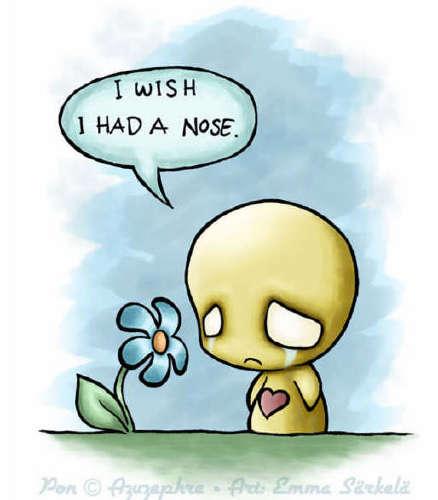
- I wish I were rich. (I am not)
- I wish it didn’t rain tomorrow.
- I wish I had already started studying for the exam. (I have not)
- I wish I had been able to go to the concert.
- I wish you wouldn’t smoke so much.
- I wish the children would be quiet.
- I wish I could give up smoking.
- I wish I could play the piano.




 London Time
London Time



